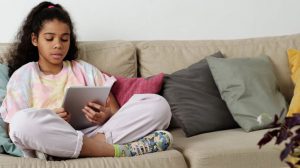A young person’s guide to lockdown and reaching out to young people via social media – suggestions from care experienced young people
Last week, we spoke to eleven young people aged 13 to 17 who are in care or have left care. They told us about some of their experiences and suggested a young person’s guide to lockdown and reaching out to young people via social media.
Kara said that this time had taken away the pressure a bit. “I can choose to get things done when I need to”. Tom has been trampolining. He has been going to school throughout this time. And so has Stephanie. But Hailey and Poppy felt there wasn’t much to do for them. For Hailey college is shut and it’s been weird not having any work to do. Poppy found it pretty stressful that there hasn’t been anything else to do. For Teresa it’s been really hard not being able to see her family. Her three younger brothers are in foster care and not being able to see them has been difficult. Hailey really missed her grandparents, her boyfriend and friends. Millie also missed school, she didn’t like it very much, but after all this time she missed it. Kara lives alone, and that’s been weird, too.
But they’ve been doing a few things to create a bit of a routine. Tom has made his own timetable and that’s helped. Poppy has been writing a “my life in lockdown” diary, and Hailey has been playing some classic card games. Michael found it helpful to say in touch with people through video calling.
Stephanie has been able to stay in touch with her social worker through WhatsApp. That has been going well. Poppy’s social worker came to her house, but had to stay away 2 meters. Millie would like to see her social worker more often. Hailey was missing the local monthly meetings of children in care.
Michael thought it was good that pollution has gone down. But he found the latest government announcement confusing. Kara said 50 pages are too long, and that there should be a young person’s guide to lockdown and lifting the restrictions. It seems that a lot of adults don’t understand it either. Tilly said there is an issue with the language that’s being used. The system says it cares and values young people, but it doesn’t always express that.
Similar to other young people we have spoken to, the group suggested a Q&A session for young people. Questions could be pre-selected but should be answered in a way that is understandable. Two questions that were mainly on their minds were: what’s actually being done for children in care and what help are the government giving to people with disabilities? Also, putting in your questions, should be done in a way that is accessible to young people, for example social media. Teresa said that young people use all forms of social media, so it would be much better to reach out to young people via social media as that would be more focused on them instead of using different websites and apps.
*All names are changed*






